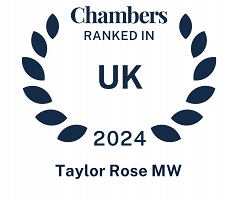News
HOW CAN YOU CONCLUDE CLAIMS WITHOUT EXCLUDING FIXED COSTS?
Wed 1 November 2017
Costs negotiations expert Nicola Gipp examines the intricacies of concluding claims without excluding fixed costs.
It has recently become increasingly apparent that more and more claims fulfil the requirements of CPR 45.29A, resulting in an entitlement to fixed costs under Section IIIA of CPR 45.
Section IIIA applies to claims that start under the RTA or EL/PL protocol, but do not continue under the protocol. For RTA claims, the claim notification form must post date 31 July 2013 (CPR 45.29B). The claim must not have been allocated to the multi-track (CPR 45.29B). If those requirements are met, it becomes more of a challenge to find a reason why fixed costs do not apply as opposed to why they do.
For example, fixed recoverable costs under Section IIIA will still apply even where damages are agreed in excess of the £25,000 portal threshold, provided the claim started under the RTA or EL/PL protocol and later exited. Equally, Section IIIA does not exclude claims which are mistakenly started under the RTA or EL/PL protocol, with the submission of a claim notification form, which are not in fact portal claims (for example because one of the portal exclusions applies).
One of the weaker arguments regularly encountered in response to fixed costs offers in cases where the receiving party thinks it is entitled to costs on an hourly rates basis is that the claim would have been allocated to the multi-track (had the claim continued to the allocation stage) or that the parties had agreed that the case was a multi-track case. That argument can be easily quashed thanks to the reasons given by Briggs LJ in Qader [1]. Only claims actually allocated to the multi-track are exempt from Section IIIA.
A slightly more challenging argument to overcome is that there was an agreement that costs would be paid on the standard basis, to be assessed if not agreed.
In cases where such an agreement was made in conjunction with a Part 36 offer and acceptance, it is helpful to point out that CPR 36.20 specifically states that where Section IIIA of Part 45 applies and a Part 36 offer is accepted within (CPR 36.20(2)) or outside (CPR 36.20(4)) of the relevant period, fixed costs apply. It has long been established that when there is a Part 36 offer and acceptance, parties cannot contract out of the terms/consequences that are included and that follow – Mitchell v James [2].
If the term for costs to be assessed on the standard basis is embodied in a court order, the hurdle to overcome to determine that fixed costs can still apply, is greater.
The fact that costs are to be assessed in itself conflicts with a determination that fixed costs apply. Fixed costs and assessed costs are conceptually different. CPR 44.6 and its Practice Direction at PD44 strongly indicate that fixed costs and assessment of costs are mutually exclusive. Despite the seemingly clear intention of the CPR that fixed costs are not eligible for assessment, detailed assessment of fixed costs has occurred for many years and will undoubtedly continue for many more.
The other issue is whether an order for standard basis costs precludes the application of fixed costs.
An assessment on the standard basis involves determining whether the claimed costs were actually incurred and if so, whether they were reasonably and proportionately incurred. Fixed costs, however, are not assessed on an item by item basis. It does not matter whether the costs were incurred or whether the amount is reasonable and proportionate when considering the work undertaken.
Fortunately, the relationship between orders for standard basis costs and fixed costs was considered and decided in favour of the paying party, by the Court of Appeal in Solomon v Cromwell [3]. The court rejected arguments that an order for costs to be assessed on the standard basis precluded the application of fixed costs.
Further support of that position can be found in See Sir Rupert Jackson’s Review of Civil Litigation Costs: Final Report Part 3, Chapter 15 (the progenitor of CPR 45 Section IIIA) page 147, Para 1.5:
In this chapter I make proposals for introducing a regime of fixed costs, which will apply in any fast track case where costs fall to be assessed (whether by order of the court or by agreement between the parties) on the standard basis.
The case law and literature arguably favour the stance that an order for standard basis costs does not preclude fixed costs. However, receiving parties remain very reluctant to accept that, which means that in most cases, a court hearing is required for the issue to be resolved. As a result, such costs disputes are rarely capable of being settled quickly or cheaply.
In brief, my advice for paying parties is as follows:
- When concluding a claim to which fixed costs apply, wherever possible, include a term in the consent/Tomlin order stating that fixed costs will be paid.
- For the purpose of potential fixed costs arguments, settlement of the main claim by way of Part 36 offer and acceptance is preferable to a court order for costs on the standard basis.
- Under no circumstances agree to an order that specifically excludes/contracts out of fixed costs.
The purpose and intention of fixed costs regimes is to limit the costs of claims that meet a certain criteria so that the amount of costs recoverable by the receiving party is fair. For receiving parties to elude fixed costs because of a technicality would be unjust.
For more information about this or any costs negotiations query please contact our Taylor Rose experts on 01733 333333.
[1] Qader v Esure [2016] EWCA Civ 1109 at [55]
[2] Mitchell v James [2004] 1 WLR 158
[3] Solomon v Cromwell [2012] 1 WLR 1048





















